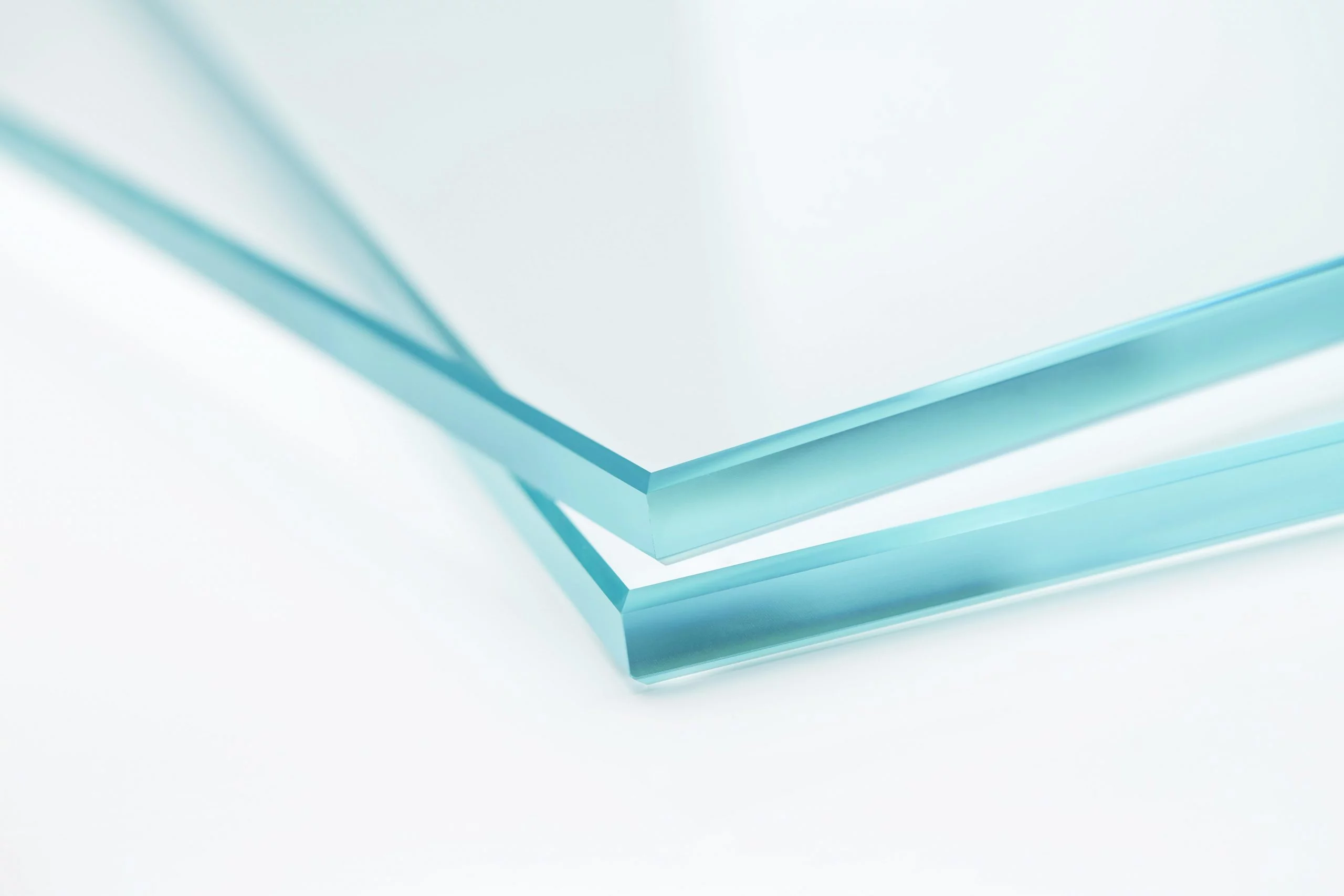Viewrail Glass Panels – Fabricated By Us
Traditional railing providers will outsource glass panel fabrication. At Viewrail, we fabricate our own glass for railings and stairways. This slashes lead times, and it allows you to get exactly what you need very quickly. We use lasers and state-of-the-art machinery to cut the glass panel to perfect specifications.
We start with large, extra-clear, low iron pieces of glass. We manufacture ½” panels to your custom dimensions, and drill mounting holes where necessary. We’re regularly audited and tested on the safety of our glass fabrication process, so you can rest assured knowing that each piece of glass you order is completely safe.
Want to know more about what glass fabrication looks like? Watch this video for a walkthrough of our facilities.
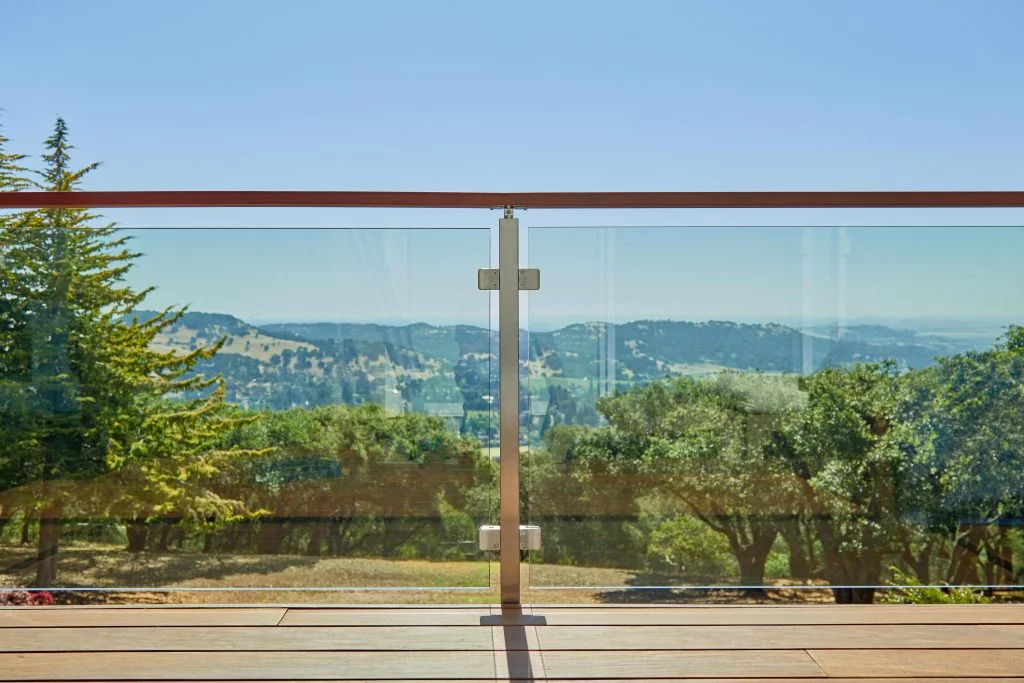
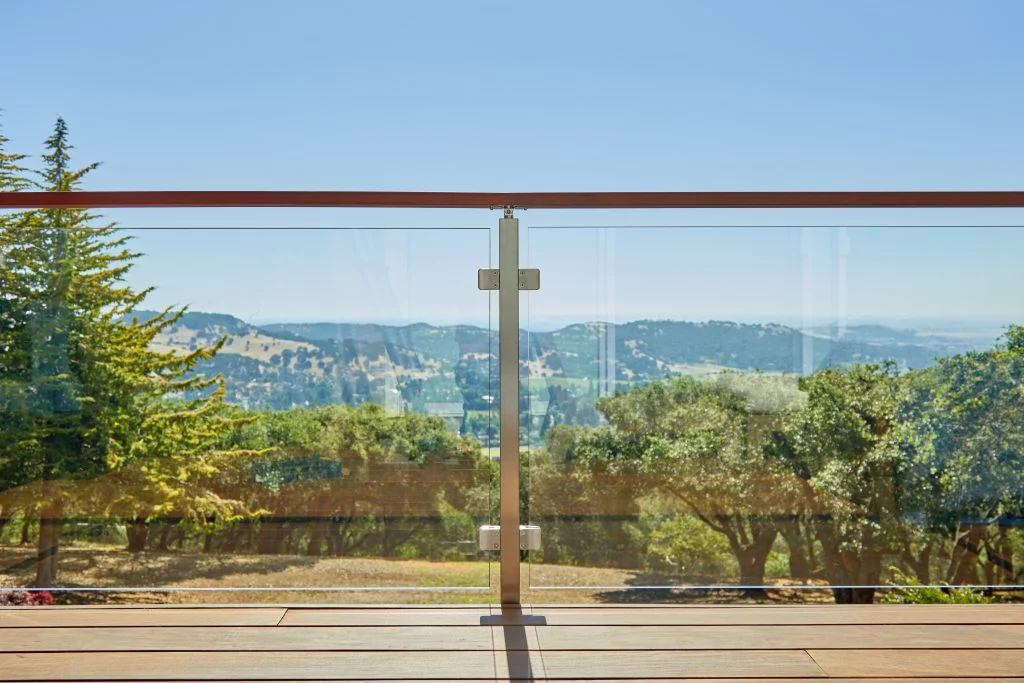
Low Iron Glass – See the Difference
Each panel is fabricated from Starphire™ low-iron glass, so it does not have that green-blue tint that’s common in glass. It’s completely clear, keeping the emphasis on your view. And, because all of the materials are in-house, we can make sure the glass is engineered precisely according to your measurements.
Low-iron glass is actually not produced any differently from standard glass: the difference is in the raw materials used. At Viewrail, we source glass that comes from a sand with a low-iron content. That’s right, the top ingredient in our low iron glass is sand. In fact, you can stack multiple panels on top of each other and still clearly see through it on the other side.
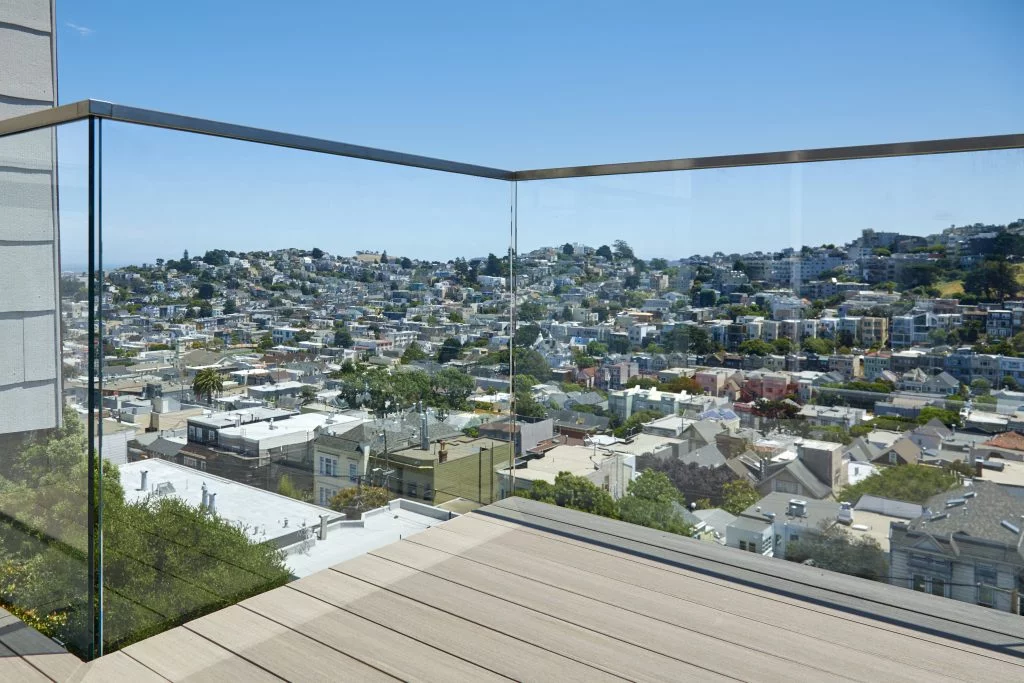
Precision Made Easy
Glass panel railing is an exact system that doesn’t allow for much adjustability on the job site. It requires a great deal of quality control and attention to detail. We know how important it is to stay in close communication throughout each stage of engineering. And, because we control the entire process of glass fabrication, we ensure that your glass will be cut exactly to the dimensions it needs to be.
Our designers and engineers collaborate directly with you and our manufacturing team, and you’ll see the direct results. We keep you updated every step along the way, ensuring every piece is cut correctly and every hole goes in the right location.
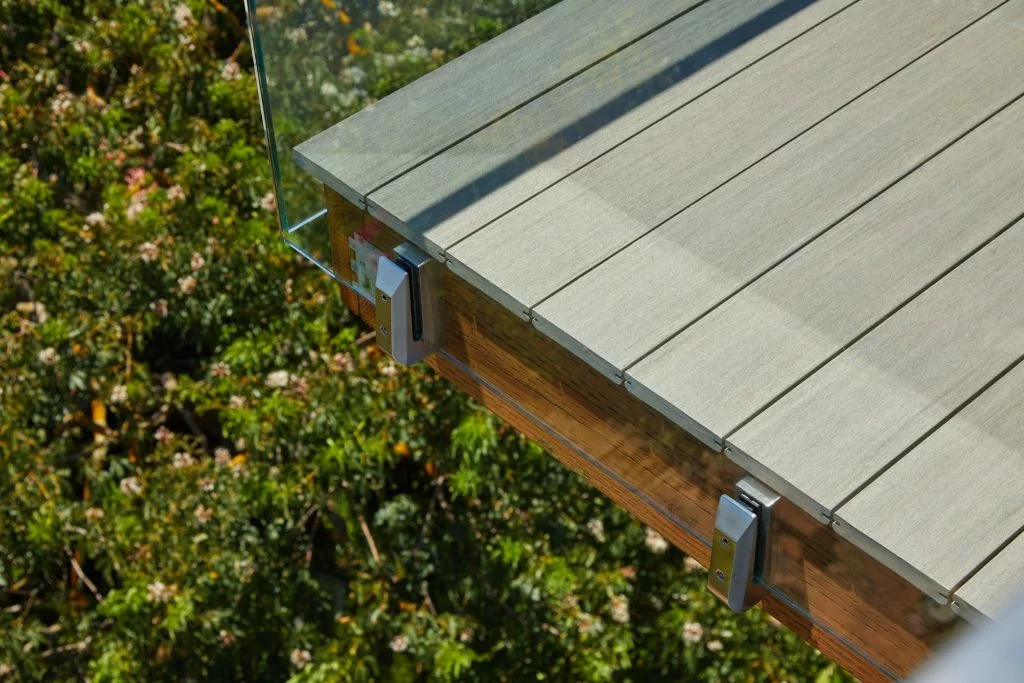
Keeping Lead Times Low
At Viewrail, we run custom orders to your specifications in small batches every single day. Have you ever been frustrated by how long it takes to receive your order after placing it with a large company? That’s because many fabrication facilities run huge orders for a variety of applications. They have tons of different specifications that require them to run large batch sizes — for both architectural and non-architectural projects. When you place your order, they may not get to your specification for several weeks.
Here, we produce glass in just two simple thicknesses, and that allows us to keep changeover times limited. We’re not selling out our maximum demand. We leave space in our production environment to put you, as the customer, first.
Frequently Asked Questions
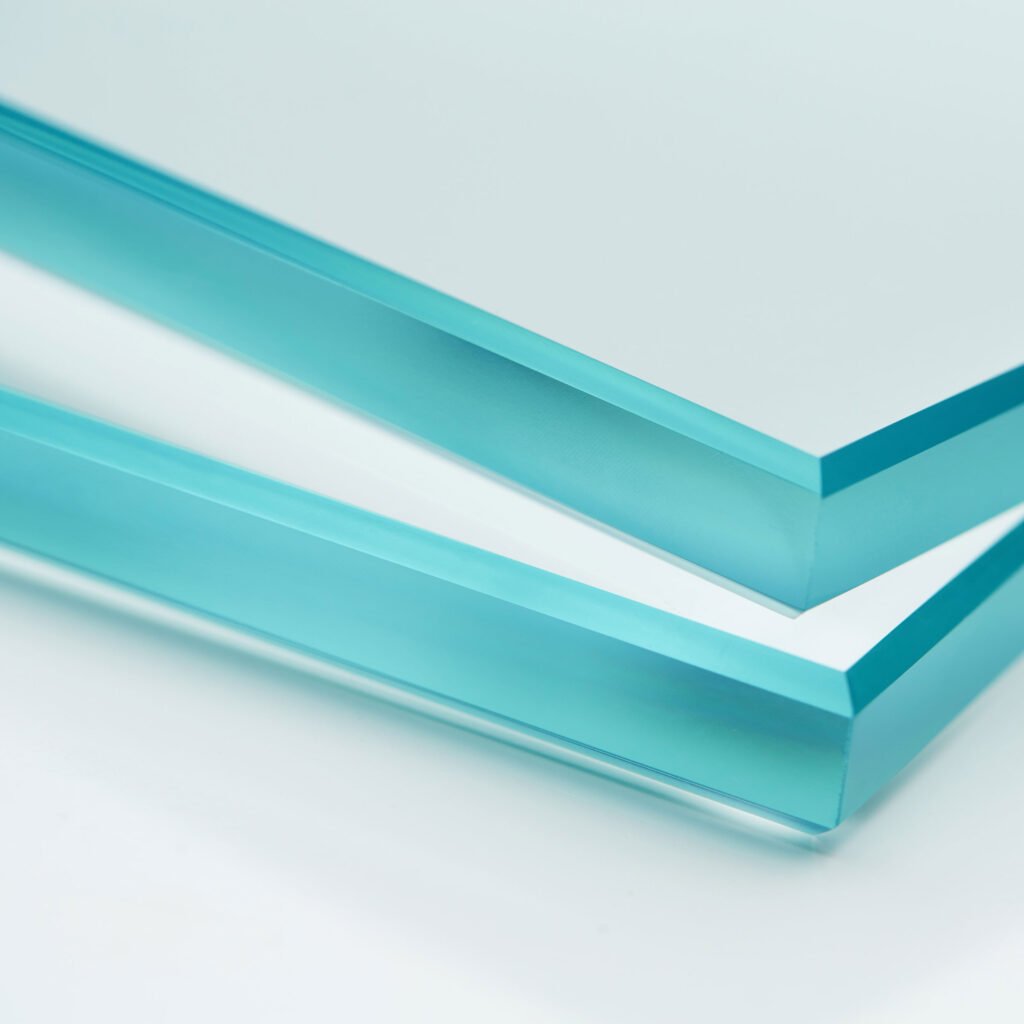
We’ll start with the easy answers. If you’re in a hurricane zone, an exterior metro area, or a commercial project, you’ll likely need laminated glass. If you’re in a residential area, non-metro area, or non hurricane zone, tempered is likely the best choice.
The Safety Glazing Certification Council (or SGCC) has specific requirements for the break pattern in tempered glass. Every day, we are testing to make sure that we are in the safe zone.
The recipes that we run are based on different thicknesses of glass and the environmental conditions of the day.
Learn more about the difference between Tempered and Laminated Glass Panels For Railing.
We want to bring a system and a solution to you that works. In order to do that, it all needs to be brought together under one roof. We’re doing very exciting things with glass and we have to have control of how everything fits together.
It begins with the sand. We have to source glass that comes from a sand that has a low-iron content. The iron content in glass is what gives it a greenish tint. The more iron in the sand to begin with, the greener and less transparent the glass will then be. No difference in production process, it’s all about raw materials.
In architectural glass, the SGCC requires that the break pattern in tempered glass must create incredibly tiny break pieces. Every day, we are testing to make sure that we are in that safe zone. Controlled by the recipe of tempering process. The recipes that we run are different based on different thicknesses of glass and the environmental conditions of that day (recipe ingredients: how quickly it’s brought up to temperature, what the temperature is, how long it stays in that temperature, fan speeds used during the quench).
